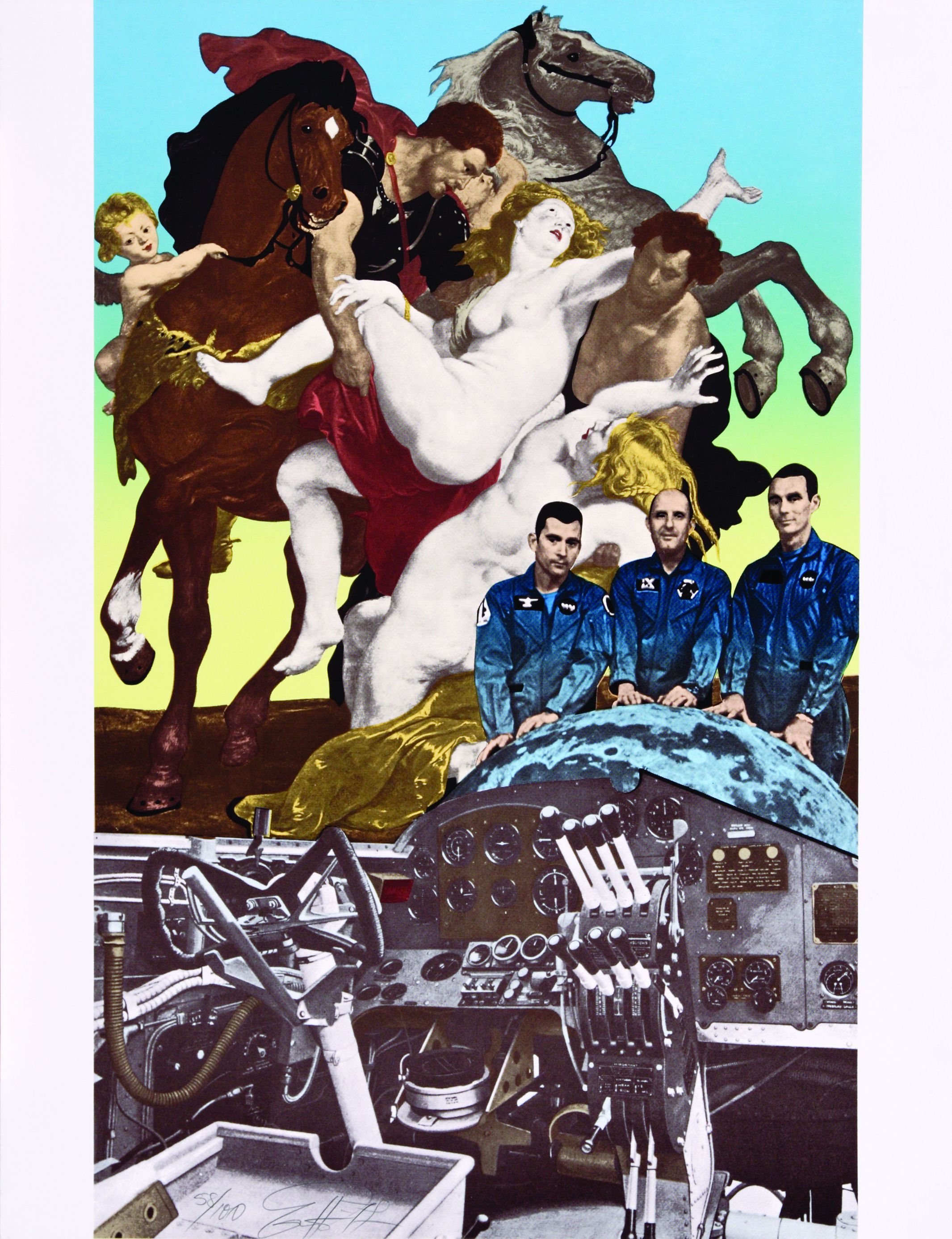Screenprint on cardboard
Dimensions: 68.5 x 50 cm
Signature, inscriptions, markings: signed, numbered and dated at lower left
Copy Number: 58/100
Accession Number: 1002442
"More and more, I enjoy having multiple sensations at the same time. For example, one leg in cold water, the other in hot mud. (...) Listening to different music with each ear; feeling the scent of exotic flowers in one nostril, some fresh breeze from the Atlantic in the other."1
In order to express this motto in his art, the Icelandic artist Erró collected thousands of postcards and newspaper pictures on numerous journeys around the globe, which he arranged in a kind of "Encyclopedia of a Traveler"2 according to 80 themes, for example hands, portraits or baroque churches. Later, he combined them in the style of political pop in a mixture of painting and comic elements with art historical subjects. In the series Space (Homage to Robert McCall), Erró took various space images by McCall as a basis and combined them with well-known motifs such as Venus or, in the work at hand here, the Rape of the Daughters of Leucippus (1618) by Peter Paul Rubens.
According to the Greek myth, the twins Castor and Pollux, demigods, after a quarrel robbed their cousins of their brides at their wedding, whereupon a fight ensued in which the robbers were killed. The baroque "model" occupies the upper half of the painting against a background almost glowing in neon colors of blue, green and yellow. Erró alters Rubens' image by reducing it to a few flat colors and shades of red, brown, yellow, gray and black, thus emphasizing the striking character of his copy. Only the two voluptuous white bodies of Phoibe and Hilaira, theatrically twisted during the robbery on horseback, are saliently bright.
In the foreground, in shades of gray, is the interior view of the cockpit of a space shuttle with all its technical details. In the right middle ground, rising in strong blue, together with a model of the moon, are the three astronauts of the Apollo 1 shuttle, Gus Grissom, Roger Chaffee and Edward White, who died in a fire during a test at Cape Canaveral in 1967, even before their actual mission. Like the robbers of the two women in the Greek story, the astronauts must have felt like demigods when the conquest of the moon and space came within reach for the first time. Only the dimensions have changed and with them the means. So now, instead of two stately horses and human strength, modern space technology serves the goal of conquering the alien. Everything seems possible, but in this case the modern as well as the ancient heroes find a cruel death in the failure of their project.
Tina Kaiser
1 Baruchello / Erró / Fahlström / Liebig, Let's mix all feelings together, Munich 1975, p. 60.
2 Helmut Bauer, Erró. In: Kritisches Lexikon der Gegenwartskunst, ed. by Lothar Romain and Detlev Bluemler, Munich 1989, p. 3.
